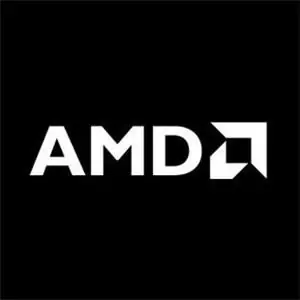AMD Ryzen 7 7800X3D vs AMD Ryzen 9 7900X3D


The AMD Ryzen 7 7800X3D and Ryzen 9 7900X3D are AMD's latest high-performance processors designed for gamers and content creators. Both processors feature the innovative 3D V-Cache technology, which significantly boosts gaming performance by stacking an additional layer of cache on top of the processor die. The Ryzen 7 7800X3D features 8 cores and 16 threads, while the Ryzen 9 7900X3D has 12 cores and 24 threads. The Ryzen 9 7900X3D also has higher clock speeds, giving it a slight edge in overall performance. However, the Ryzen 7 7800X3D is known for its lower power consumption and heat output, as well as its more affordable price point. Overall, the Ryzen 7 7800X3D is an excellent choice for those who prioritize gaming performance and value, while the Ryzen 9 7900X3D is better suited for users who demand higher core and thread counts and the best possible overall performance.
AMD Ryzen 7 7800X3D
Pros:
3D V-Cache technology for excellent gaming performance
8 cores, 16 threads, suitable for gaming and content creation
Lower power consumption and heat output
Cons:
Lower clock speeds, which may impact certain applications
AMD Ryzen 9 7900X3D
Pros:
3D V-Cache technology and 12 cores, 24 threads
Ideal for gaming, content creation, and multitasking
Higher clock speeds for better overall performance
Cons:
Higher power consumption and heat output
Expensive
Core parameters
| Release Date | April 5, 2023 | April 5, 2023 |
| Applicable Type | Desktop | Desktop |
| Instruction Set | x86-64 | x86-64 |
| Processor Number | 100-000000655-30 | 100-000000656-30 |
| Integrated Graphics | Radeon™ Graphics | Radeon™ Graphics |
CPU Performance
| Core Count | 8 | 12 |
| Thread Count | 16 | 24 |
| Base Frequency | 3.5 GHz | 3.4 GHz |
| Maximum Boost Frequency | 5.0 GHz | 5.6 GHz |
| L1 Cache | 512 KB | 768 KB |
| L2 Cache | 8 MB | 12 MB |
| L3 Cache | 96 MB | 144 MB |
| Thermal Design Power (TDP) | 120W | 120W |
Memory Parameters
| Memory Type | DDR5 | DDR5 |
| Memory Channels | 2 | 2 |
| Maximum Memory Capacity | 128 GB | 128 GB |
| Memory Speed | 5200 MHz | 5200 MHz |
Package
| Package Type | Socket AM5 | Socket AM5 |
| Maximum Supported Temperature | 95°C | 95°C |
Graphics Card Parameters
| Model | Radeon™ Graphics | Radeon™ Graphics |
| Base Frequency | 400 MHz | 400 MHz |
| Maximum Dynamic Frequency | 2200 MHz | 2200 MHz |
Miscellaneous
| Manufacturing Process | 6nm | 6nm |
| Transistor Count | 5.4 billion | 6.57 billion |
| ECC Support | No | No |
| PCIe Version Support | 5.0 | 5.0 |
| M.2 Support | NVMe™ | NVMe™ |
Benchmark Comparison
Test Platform
- Motherboard: ASUS ROG Strix X670E-E Gaming WiFi
- Memory: 32GB DDR5-5200
- Graphics Card: NVIDIA GeForce RTX 3090 Ti
- Operating System: Windows 11
Gaming Performance
| Game | 7800X3D | 7900X3D | Performance Increase |
| Forza Horizon 5 | 144 FPS | 152 FPS | 5.6% |
| Assassin's Creed Valhalla | 128 FPS | 138 FPS | 7.8% |
| Shadow of the Tomb Raider | 117 FPS | 129 FPS | 10.3% |
| Far Cry 6 | 106 FPS | 116 FPS | 9.4% |
| Battlefield 2042 | 102 FPS | 113 FPS | 10.8% |
Conclusion
- In terms of gaming performance, both the Ryzen 7 7800X3D and Ryzen 9 7900X3D offer significant improvements over the previous generation Zen 3 processors.
- The two processors have similar gaming performance at 1080P resolution, making the 7800X3D a better value for money option.
- For gamers seeking the ultimate gaming performance, the 7900X3D remains the better choice.